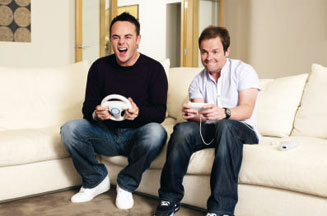The latest Nintendo campaign featuring Ant and Dec is one that I want to hate.
I want to hate it because it's lazy. I want to hate it because there's no consumer insight. I want to hate it because there's no creative idea. I want to hate it because there's nothing of executional interest.
And I want to hate it because Ant and Dec's over-the-top praise is inauthentic. It's a simple product demo with some celebrities thrown in for saliency. It deserves to fail.
But it won't, and that's why I can't hate it. It will work because the likes of Wii Fit, Wii Sports Resort and Dr Kawashima's Brain Training are such superior products that a simple demo is all you need.
In comparison with the competition, the Nintendo Wii and DS are so original you just have to show them in action, and then, kerching!
Nintendo is certainly in good company. Both Apple and Dyson have followed this formula for several years, to great effect. If you've got it, flaunt it - and don't let any namby pamby strategy or creative get in your way.
As an industry we can be guilty of over-complication, of looking for that ‘breakthrough' campaign, the ‘paradigm shift', the ‘industry first' that all too often obscures the straightforward and most effective solution.
So should we applaud the Nintendo team for having the maturity to choose the boring but effective route?
Up to a point. For sure, this campaign is a till-ringer and uses a formula that will work as long as Nintendo has product supremacy. If, however, it were to suddenly find itself in a market of parity, it may well rue the missed opportunity to have built a brand of more substance.
It's a balance with which marketers are constantly challenged - how to maximise short-term sales without compromising long-term brand health. Inevitably, investment in long-term brand health is a tougher sell due to the difficulty in quantifying a return on investment.
However, those marketers who do achieve this balance are the ones we should applaud. Nintendo needs only to look to PlayStation for an example of the importance of investing in long-term brand health.
PlayStation cultivated and nurtured a potent brand when times were good. Yes, its communications helped consoles fly off the shelves, but it also helped build a durable brand.
This strength is what's keeping it alive now that it finds itself technically out-gunned by the likes of Microsoft's Xbox. Brand strength is its insurance policy, buying it the time it needs to plot its revival.
Nintendo, I fear, has no such insurance.


